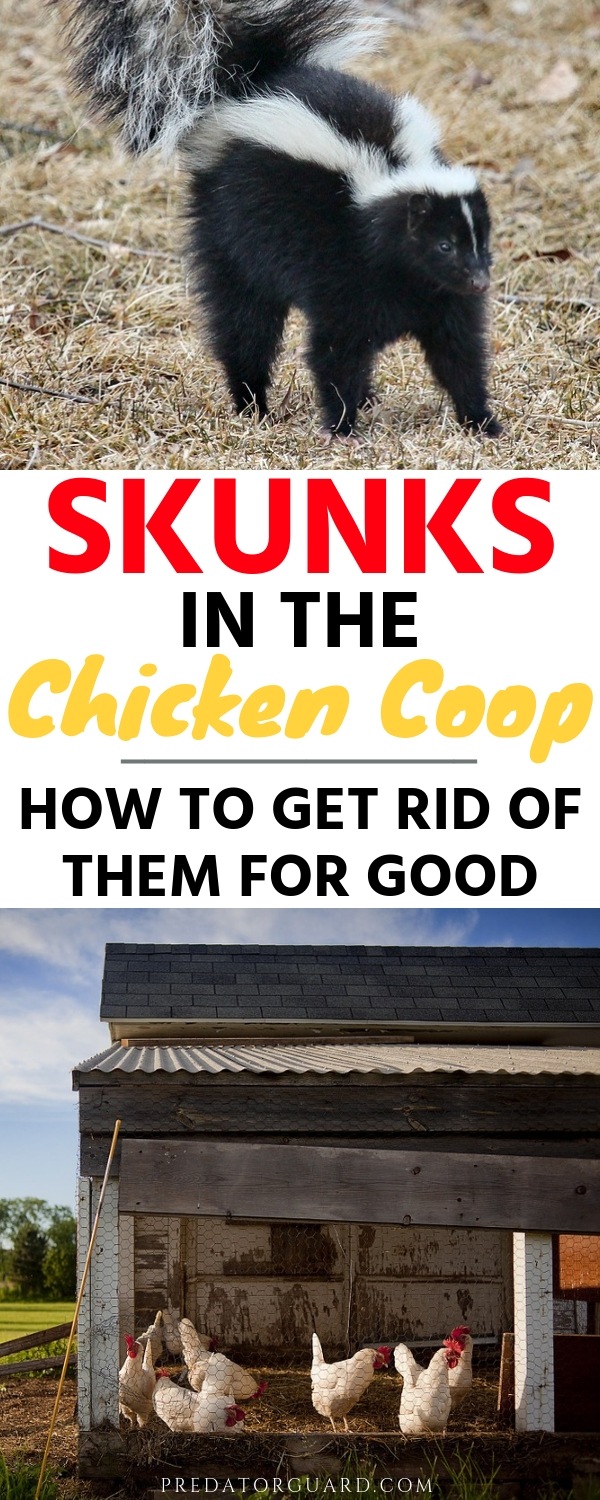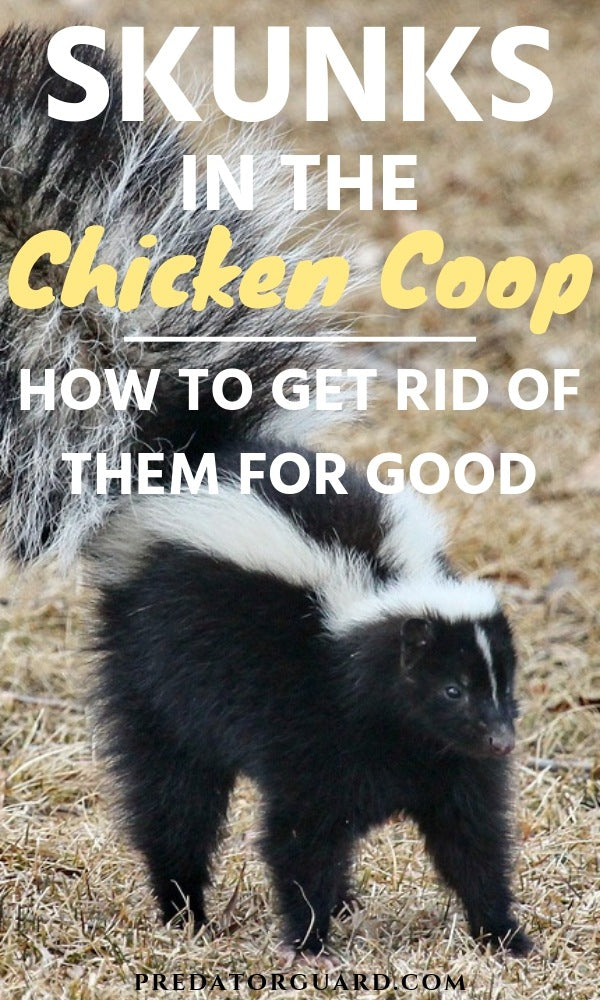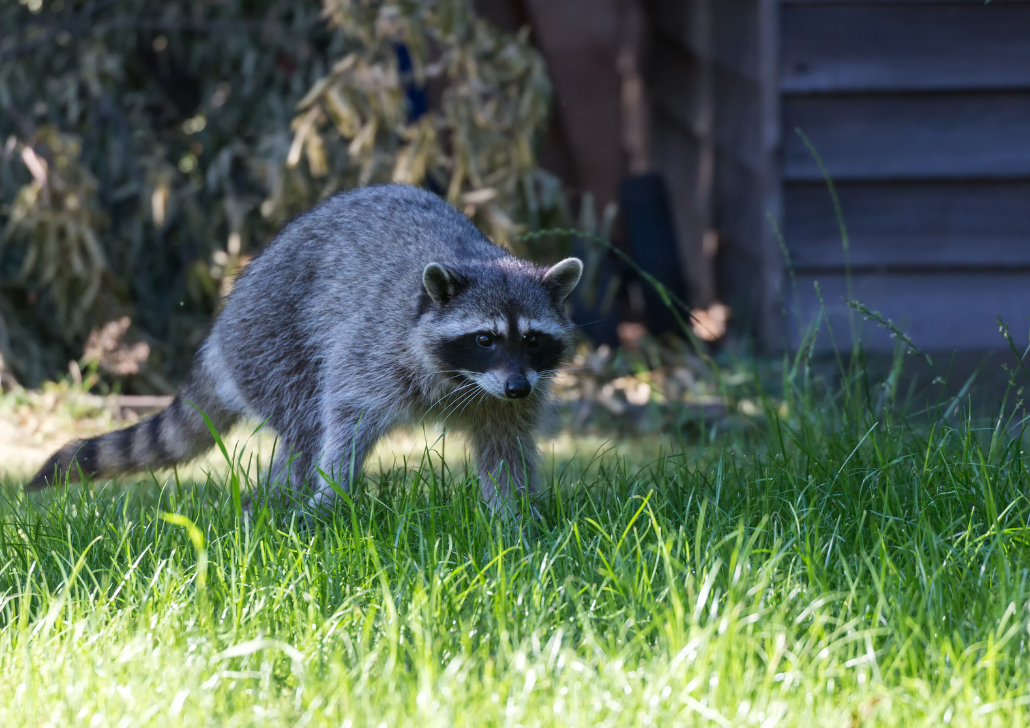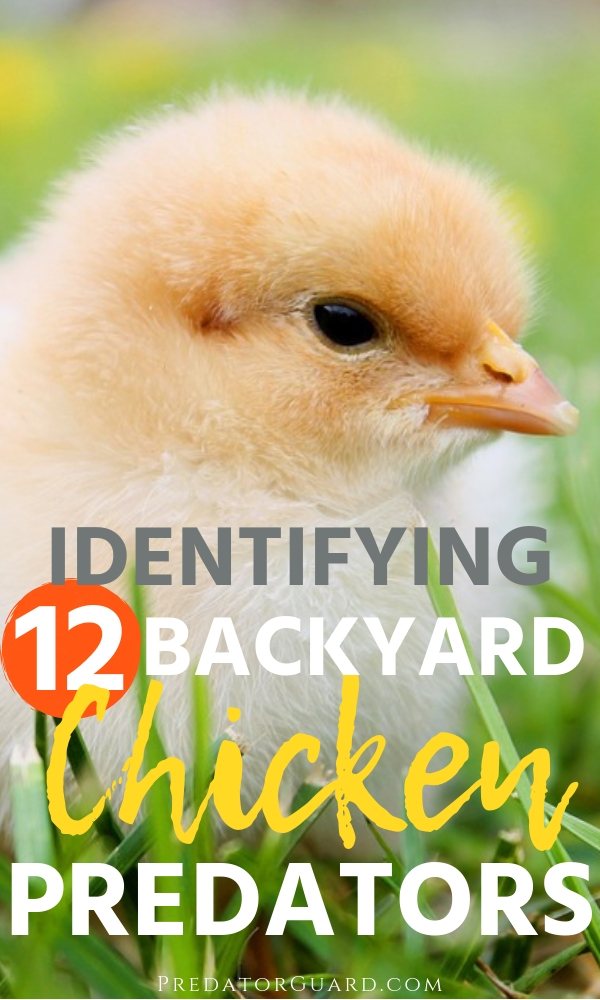Are you having trouble with skunks in the chicken coop? Learn how to get rid of them and keep your chickens safe, for good!
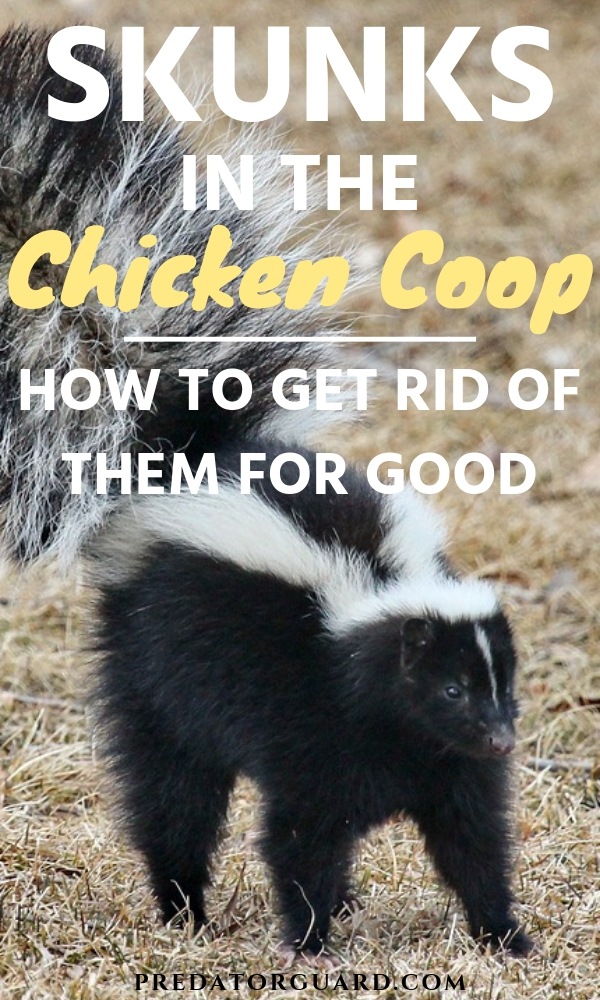

If you suspect that skunks may be lingering on your property or breaking into your chicken coop, there are several steps you should take to get rid of them.
If the prospect of getting sprayed isn't bad enough, skunks will dig up your yard and garden, swipe eggs and young chicks, and injure any adult chickens that stand in his/her way.
As always, we don't advocate harming or killing any skunks that you find on your property. There are plenty of effective, non-lethal options available to you.
Your chickens will be safe, the skunks will leave your property, and everybody wins!
How To Get Rid of Skunks In The Chicken Coop
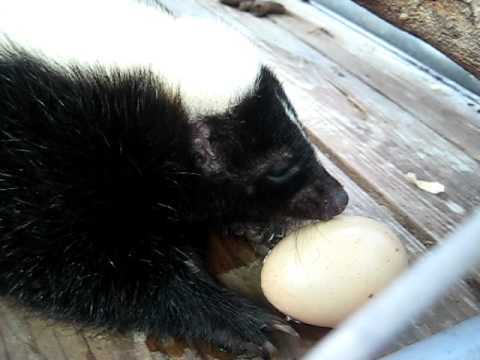
Skunks are generally referred to as "mild-mannered" and non-aggressive visitors. However, they can still become a nuisance on your property, and have been known to injure or even kill chickens.
In fact, I've spoken to many people who beg to differ. Some skunks are quite aggressive!
Because they're nocturnal, they typically strike after you've turned in for the night. It's important to set up a defense for your chickens so you don't have to wake throughout the night to check on them.
Skunks dine on a variety of crop-destroying insects, such as Japanese beetles, hornworms, and larvae of cutworms. This is great! Until you realize that they also eat the leaves and buds of your plants, dig up patches of grass, go through your garbage and pose a threat to your chickens.
What To Look Out For
There are a few things to look out for when trying to identify a skunk on your property.
- Their signature foul odor.
- Tracks - Skunks have five toes and you will likely be able to see their claw marks as well. Their tracks are often mistaken for a raccoons'.
- 3-4 inch deep holes in your yard or flower beds. (Skunks dig to find grubs to munch on.)
- Missing eggs or baby chicks.
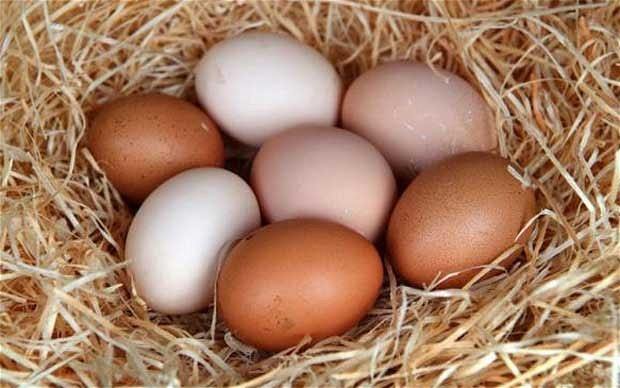
Skunks may be attracted to your property for a number of reasons. Delicious eggs, grubs, trash, and pet food to name a few.
It's important to always keep things clean and tidy. Collect eggs frequently, put all pet food away, and secure your trash can with a lid. Since skunks love to eat eggs and sometimes even young chickens, they're attracted to the scent of a dirty coop, so be sure to clean it out frequently.
If the skunks are digging up your yard or garden, it's safe to assume that they're searching for grubs.
To get rid of grubs, apply beneficial nematodes. These are a wonderful organic pest control option that will not harm humans, pets, or even earthworms. These microscopic insects disintegrate the grubs living under the surface of your yard.
Secure Your Chicken Coop

Locking your chickens up at night doesn't do you much good when the coop isn't secure. If there's a way for a skunk to break in, they'll find it, regardless of their poor eyesight.
Search for any entry points or weak spots in your coop, and seal them accordingly. As mentioned in pervious articles, you may need to bury hardware cloth a few inches into the ground, to discourage digging.
Place Ammonia Soaked Rags Around The Yard
Many people in forums and other articles report that setting ammonia soaked rags around the area can work quite well at keeping skunks at bay. The strong scent is similar to that of a larger predator animal's urine, which makes the skunks uneasy.
Place them in metal containers around your coop to deter the skunks from approaching. You can use old coffee cans, metal baking trays, or anything else that prevents the ammonia from seeping through to the ground.
Sprinkle Cayenne Pepper Flakes

Cayenne pepper flakes are great for repelling a number of animals on your property. Even better, chickens don't have the capsaicin receptors necessary to taste the heat of various peppers and other spicy flavors.
Your chickens will remain unbothered, and the skunks and other mammals will learn to avoid the area.
Install Solar LED Deterrent Lights
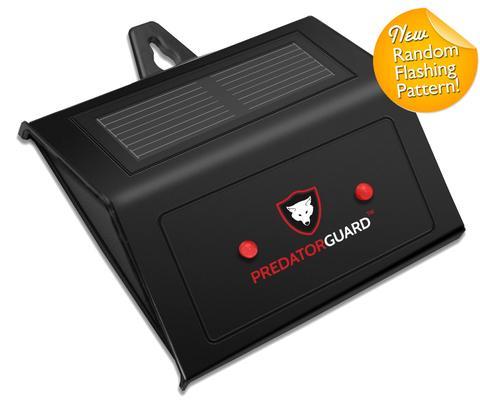
Our Solar LED Deterrent Lights keep nocturnal animals away from your coop, or any other place you install them. The twin LED lights are mistaken for the glowing eyes of a predator, effectively scaring the skunks and other nighttime pests away!
Set Some Catch and Release Traps
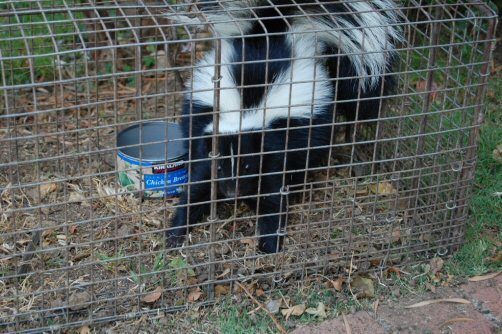
If, for some reason, the above methods haven't worked for you and your coop is still being visited by skunks, you can try setting some catch and release traps.
Naturally, most people tend to avoid this option because they're afraid of getting sprayed. Rightfully so!
Baits such as cat food, eggs, canned sardines, bacon, or bread with peanut butter can all work well to entice skunks. Once trapped, approach the skunk with a large towel in front of you, hanging all the way to your toes.
Approach quietly and calmly so you don't frighten the already upset skunk, then drop the towel down over the trap. Skunks don't like to spray when they're not sure where their target is.
Before releasing the skunk back into the wild, check your local laws regarding relocation and release. Remember not to release the skunk too far from your home - about three miles is ideal.
Have you ever had a problem with skunks breaking into your chicken coop? What method worked the best for you? Let us know in the comments below!
If you liked this post, don't forget to pin it for later:
